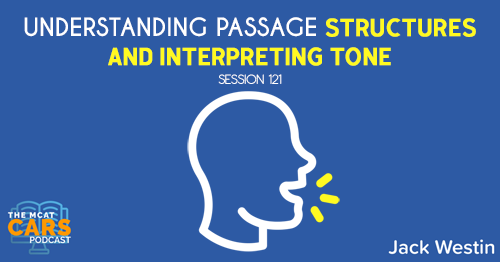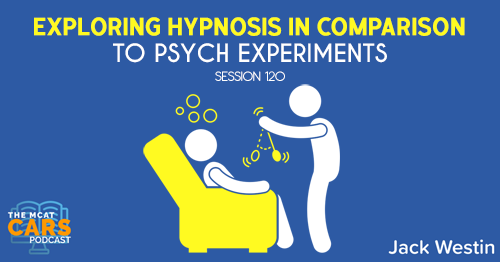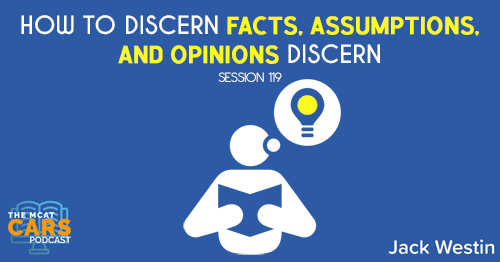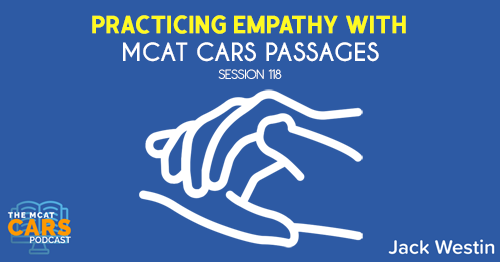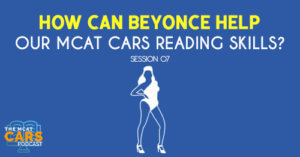
Session 07
Link to the full article: https://www.nytimes.com/2018/09/19/arts/music/celebrity-profile-death.html
All glossy magazine superstar covers may look the same from a distance, but inside, you’re never quite sure what you’ll find.
Take the October issue of GQ, which features Paul McCartney. For decades he has leaned on familiar Beatles anecdotes, presuming that decades-old chestnuts may still pass for warm. But in GQ, over the course of several long conversations, he revealed himself to be unstudied, slightly wishy-washy and much less preoccupied with the sanctity of his own image than you might think — he even offered a recollection about the Beatles’ teenage sexual adventures that led to a characteristically sweaty New York Post headline: “Beat the Meatles.”
The story worked in two ways: For the reader and fan, it was appealingly revealing; for Mr. McCartney, who’s been famous so long he is more sculpture than human, it was a welcome softening.
This took a willingness to answer questions, to submit to the give and take that comes with a profile of that scale. But not all big stories demand such transparency of their subjects: say, the September issue of Vogue with Beyoncé on the cover. The accompanying article is titled “Beyoncé in Her Own Words” — not a profile, but a collection of brief, only-occasionally-revealing commentaries on a range of topics: motherhood and family, body acceptance, touring. Anna Wintour refers to the story in her editor’s letter as a “powerful essay” that “Beyoncé herself writes,” as if that were an asset, not a liability. There was a journalist in the room at some point in the process — the piece has an “as told to” credit at the end — but outside perspectives have effectively been erased.
For devotees of Beyoncé, this might not matter (though it should). But for devotees of celebrity journalism — the kind of work that aims to add context and depth to the fame economy, and which is predicated on the productive frisson between an interviewer and interviewee — this portends catastrophe. And it’s not an isolated event. In pop music especially, plenty of the most famous performers essentially eschew the press: Taylor Swift hasn’t given a substantive interview and access to a print publication for at least two years. For Drake, it’s been about a year (and a tumultuous one at that). Frank Ocean has all but disappeared (again).
What’s replaced it isn’t satisfying: either outright silence, or more often, unidirectional narratives offered through social media. Monologue, not dialogue. It threatens to upend the role of the celebrity press.
[05:24] Paragraph 1, Sentence 1:
All glossy magazine superstar covers may look the same from a distance, but inside, you’re never quite sure what you’ll find.
Jack says:
Basically, it’s saying don’t judge a book by its cover.
[05:55] Paragraph 2, Sentences 1-2:
Take the October issue of GQ, which features Paul McCartney. For decades he has leaned on familiar Beatles anecdotes, presuming that decades-old chestnuts may still pass for warm.
Jack says:
Paul McCartney is used as an example here. “Still pass for warm” is probably a figure of speech. Maybe it’s trying to say that it’s still relevant and still something being used. But this isn’t important as long as you realize we’re familiar with the Beatles and they’re popular.
[07:40] Paragraph 2, Sentence 3:
But in GQ, over the course of several long conversations, he revealed himself to be unstudied, slightly wishy-washy and much less preoccupied with the sanctity of his own image than you might think — he even offered a recollection about the Beatles’ teenage sexual adventures that led to a characteristically sweaty New York Post headline: “Beat the Meatles.”
Jack says:
The author is not painting the best picture of Paul and that he’s not worried about his image. He seems to be revealing his true self, his life, and maybe, some of his work.
[08:51] Paragraph 3, Sentence 1:
The story worked in two ways: For the reader and fan, it was appealingly revealing; for Mr. McCartney, who’s been famous so long he is more sculpture than human, it was a welcome softening.
Jack says:
The fans like it because they get to see more and that Paul’s an actual human. “Welcome softening” seems like a good thing. Opening up about yourself, especially for celebrities, is a good thing.
[09:50] Paragraph 4, Sentence 1:
This took a willingness to answer questions, to submit to the give and take that comes with a profile of that scale.
Jack says:
It took some guts to answer the questions that openly.
[10:12] Paragraph 4, Sentence 2:
But not all big stories demand such transparency of their subjects: say, the September issue of Vogue with Beyoncé on the cover.
Jack says:
The author is now giving the other side, that you don’t always have to be transparent and talking about Beyonce as a specific example.
[10:34] Paragraph 4, Sentence 3:
The accompanying article is titled “Beyoncé in Her Own Words” — not a profile, but a collection of brief, only-occasionally-revealing commentaries on a range of topics: motherhood and family, body acceptance, touring.
Jack says:
They’re just describing what the article was. It was only occasionally revealing so it’s not really revealing the true self like that of Paul. This is the hard part when people read about Beyonce. But they don’t realize that the author is expressing that Beyonce wasn’t so revealing, as compared to Paul McCartney. We can assume it’s negative since the “welcome softening” was portrayed in a positive light.
[11:47] Paragraph 4, Sentence 4:
Anna Wintour refers to the story in her editor’s letter as a “powerful essay” that “Beyoncé herself writes,” as if that were an asset, not a liability.
Jack says:
Beyonce wrote it herself, as if it were an asset, not a liability. So maybe, it is a liability. Maybe it’s bad that this celebrity is writing in their own words. We don’t know 100% yet but this is maybe where it’s leaning into.
[12:58] Paragraph 4, Sentence 5:
There was a journalist in the room at some point in the process — the piece has an “as told to” credit at the end — but outside perspectives have effectively been erased.
Jack says:
Maybe she didn’t really write it herself and there was a journalist in the room. But those perspectives have been erased and it’s supposedly written in Beyonce’s words.
[13:33] What It Means So Far
The article of Beyonce isn’t as revealing as told to in the credits. It’s not really another perspective but really just her perspective.
[14:09] Paragraph 5, Sentence 1:
For devotees of Beyoncé, this might not matter (though it should).
Jack says:
These hardcore fans of Beyonce are going to care and read anything that she has written. But maybe they should care that it’s not really very revealing or not her words.
[14:34] Paragraph 5, Sentence 2:
But for devotees of celebrity journalism — the kind of work that aims to add context and depth to the fame economy, and which is predicated on the productive frisson between an interviewer and interviewee — this portends catastrophe.
Jack says:
For those who like journalism, this is not a good thing. It’s a very clear opinion that the author is giving us and that it’s bad. It’s negative and a devastation.
Underlining or highlighting her is not important since it may only distract you. Highlighting something doesn’t mean you’re understanding it. You just have to understand it. Highlighting will help you remember where it appeared. If you understood this then you don’t have to highlight it and worry about highlighting at all.
[Tweet “”Don’t mistake highlighting for understanding.” https://medicalschoolhq.net/cars-7-we-use-our-mcat-cars-skills-to-read-about-an-author/”]
[16:17] Paragraph 5, Sentence 3-4:
And it’s not an isolated event. In pop music especially, plenty of the most famous performers essentially eschew the press: Taylor Swift hasn’t given a substantive interview and access to a print publication for at least two years.
Jack says:
They’re bringing in another name here and that Taylor hasn’t revealed herself either. And based on the succeeding sentence, you think that “eschew” may mean avoiding the press. So you don’t have to have a really strong vocab here as long as you know what’s going on and the context.
[17:20] Paragraph 5, Sentence 5-6:
For Drake, it’s been about a year (and a tumultuous one at that). Frank Ocean has all but disappeared (again).
Jack says:
Two examples here. The paragraph here says that fans like any sort of article on their favorite stars but these stars are avoiding the press and that’s kind of a bad thing.
[17:59] Paragraph 6, Sentence 1:
What’s replaced it isn’t satisfying: either outright silence, or more often, unidirectional narratives offered through social media.
Jack says:
Because stars aren’t talking to the press, either nothing is coming out or social media stuff is being pushed out. It’s unidirectional so it’s just one person’s voice. Unidirectional is another way of being less revealing. If it’s only one perspective, then it’s not revealing. This is an assumption the author is trying to make for us. In order to have a revealing conversation, we need to have a bidirectional or like an interview. This is something to keep in mind here as this could be something they could ask questions about.
[19:18] Paragraph 6, Sentences 2-3:
Monologue, not dialogue. It threatens to upend the role of the celebrity press.
Jack says:
A good question the MCAT may ask here is which of the following would the author not prefer in today’s articles? And they’ll give you three answers that have something to do with conversations where there’s a bidirectional aspect to it. Whereas one would only be a monologue, and the answer would be that. So they can add analogy questions so you have to know that bigger picture in order to answer those questions.
[21:21] Big Takeaway from this Passage
We have Paul McCartney who’s becoming more transparent in his interviews and then there are other stars out there who aren’t becoming more transparent or avoiding the press and how that’s bad.
It’s about not having real conversations or interviews and it’s bad as it’s not revealing for literature. Just because this article interesting doesn’t mean you’re going to have an easy time with it. You still have to understand that bigger picture. And sometimes, having this kind of topic may actually distract you from your goals.
Usually, the MCAT isn’t going to put in articles that are relevant to you. They’re going to have more boring, mundane passages. But this does fall under pop culture which is one of the topics they could present in CARS. Usually, when they say pop culture, it’s older times like the 1800s or 1900s. This makes it mundane and boring.
[24:10] Check Out Jack Westin
Our goal here is to make the passages sound less intimidating for you so you can have a system in place where you can go in and break down these passages, sentences, and paragraphs – to help you become more confident and increase your CARS score and your overall MCAT score.
Links:
Link to the full article: https://www.nytimes.com/2018/09/19/arts/music/celebrity-profile-death.html



